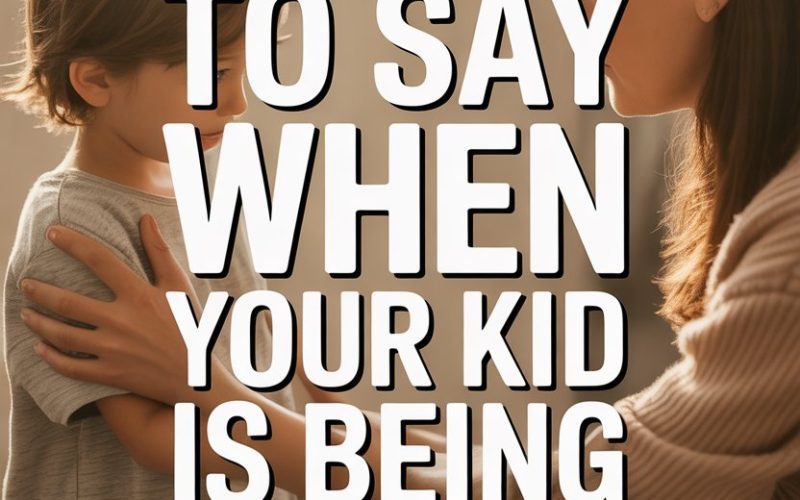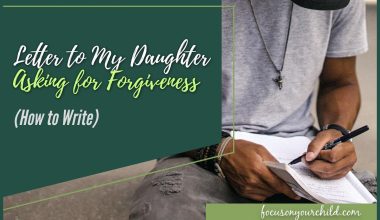Every parent knows the feeling: You’re at the playground, coffee in one hand, your best fake-smile in the other, when suddenly your precious cherub tells another child they smell, or won’t let them play because “only cool kids” can use the slide.
Time slows. Eyeballs swivel. You’d like to sink into the rubber mulch and never emerge.
You’re not raising a mini villain, but every child tests boundaries—and sometimes that means crossing straight into Cruelville.
Here’s the good news: even when your kid says or does something mean, it’s a golden opportunity for building empathy, accountability, and better behaviour.
Why Kids Sometimes Act Cruel
Children aren’t born with a manual on emotional regulation tucked under their arm.
Many times, hurtful words or actions bubble up from frustration, confusion, social awkwardness, or plain old curiosity about what happens if you push the limits.
Some kids lash out when they feel powerless; others are simply mimicking behaviour they’ve seen on TV, at home, or in school.
Psychologists like Dr. Laura Markham point out that social skills develop over time, not overnight. Kids are constantly experimenting with what’s funny, what’s shocking, and what gets attention.
That doesn’t excuse unkindness, but it does explain why even your sweet pea can morph into a tiny dictator at the park.
Start With a Pause
Witnessing cruelty in action tends to send a parent’s panic-o-meter into the red.
Resist the urge to swoop in with a guilt trip or lengthy lecture. Take a breath. Remind yourself: your child’s behaviour is a work in progress, not a referendum on your parenting.
A pause helps you respond thoughtfully, not react emotionally.
Get Curious, Not Furious
Once you’ve unclenched your jaw, try to figure out what’s really going on. Kids often have reasons for their behaviour, even if they’re not immediately obvious (or logical by adult standards).
Instead of launching into scolding mode, channel your inner detective.
Calmly ask, “What happened there?” or “Can you tell me what you were thinking?” Keep your tone as neutral as possible—think BBC newsreader, not drill sergeant.
When children feel safe to explain, you’re more likely to uncover the root cause: maybe they’re feeling left out, jealous, overwhelmed, or just plain tired.
Label the Feeling, Not the Child
Language matters—a lot.
Telling a child “You’re being mean” or “You’re a bully” sticks labels on them that can feel permanent and shameful. Instead, help them name the emotion behind the action.
Try phrases like, “I wonder if you were feeling angry when you said that,” or “It looked like you felt frustrated when you pushed your brother.”
You help your child separate who they are from what they did, and open the door for change.
This approach is backed by research on emotional intelligence, which shows that kids who can name their feelings are better equipped to manage them.
Empathy Is a Skill, Not a Lecture
Every parent has tried The Talk: “How would you feel if someone did that to you?” Cue eye roll.
Empathy isn’t downloaded via speech. It’s practised, over and over.
Rather than a one-off guilt trip, gently encourage your child to imagine the other person’s perspective. You might say, “I saw that Sammy looked really sad when you told him he wasn’t invited. Why do you think he felt that way?”
If your child shrugs or mutters “Dunno,” avoid pressing for the “right” answer.
Instead, try modelling empathy yourself: “If someone said I couldn’t join in, I think I’d feel a bit left out.” Give them the words, and gently invite them to try them on.
Natural Consequences Trump Punishment
A knee-jerk reaction might be to send your child to their room or take away screen time. Strict punishment can sometimes breed resentment or sneakiness (“Next time, I’ll just make sure Mum isn’t watching!”).
Instead, focus on repairing the relationship.
That could mean encouraging your child to apologise, asking what they can do to make amends, or involving them in coming up with a solution: “What do you think we can do to help your friend feel better?”
Research on restorative justice in schools shows that when kids participate in making things right, empathy grows and repeat incidents shrink.
Praise Effort, Not Perfection
Catching your child being kind can be as powerful as addressing their cruelty.
When you notice them sharing, comforting, or including others, acknowledge it specifically: “I saw how you helped Ava when she was upset—that was really thoughtful.”
It’s tempting to expect instant transformation, but change is rarely a Hollywood montage. Kids need to know you notice their effort, not just their slip-ups.
Stay Consistent, Even When It’s Embarrassing
Handling cruelty privately is much easier than doing it when you’re under the watchful gaze of other parents.
The playground can feel like a gladiator arena, but staying calm and consistent sends your child the message that kindness matters all the time—not just when the neighbours aren’t watching.
If you’re mortified, you can always use humour to defuse the tension: “Well, that wasn’t your kindest moment, was it? Shall we try again?”
You’ll find other parents are usually relieved to see someone else’s child acting human for a change.
When Cruelty Becomes a Pattern
One or two incidents don’t mean your child is headed for a starring role in a true-crime podcast. But if you notice repeated cruelty—to siblings, classmates, pets, or even you—it’s time to dig deeper.
Some children struggle with impulse control or emotional regulation. Others may be dealing with anxiety, stress, or even bullying themselves.
Consider talking to your child’s teacher, a school counsellor, or a child psychologist for support. According to the National Association of School Psychologists, early intervention can make a world of difference.
Social Scripts for Sticky Moments
Let’s be honest: it’s hard to find the right words when emotions are running high. Here are some scripts you can keep in your back pocket for those “Oh no, did you just say that?” moments:
- “It’s okay to feel upset, but we don’t use words that hurt.”
- “What you said sounded unkind. Can you think of a different way to say what you’re feeling?”
- “Everyone wants to feel included. How can we help your friend join in?”
- “If you’re feeling mad, you can tell me. You don’t have to hurt someone else.”
Short, direct, and non-shaming—these phrases let you address the behaviour, stay calm, and give your child a chance to course-correct.
Remember Your Own Cruelty Curriculum
Before you despair, think back to your own childhood. Most adults can recall at least one cringe-worthy moment when they said or did something unkind (that still haunts them in the shower decades later).
The important part isn’t being perfect—it’s having a guide to help you grow.
Your child is still building their “how to be a decent human” toolkit. Every slip-up is a chance to add a new tool.
Empathy Grows, One Conversation at a Time
Raising a child who cares about others is a marathon, not a sprint.
You’ll have days when it feels like nothing’s sinking in and others when your child surprises you with a hug, a kind word, or an apology they dreamt up all on their own.
Handling those moments of cruelty with curiosity, boundaries, patience, and a smidge of humour plants the seeds for empathy and resilience.
And if all else fails—well, there’s always that rubber mulch to hide in for a minute.
Who said parenting was easy? But you’re absolutely nailing the hard bits.
Keep at it; you’re raising a good egg, one tricky conversation at a time.




